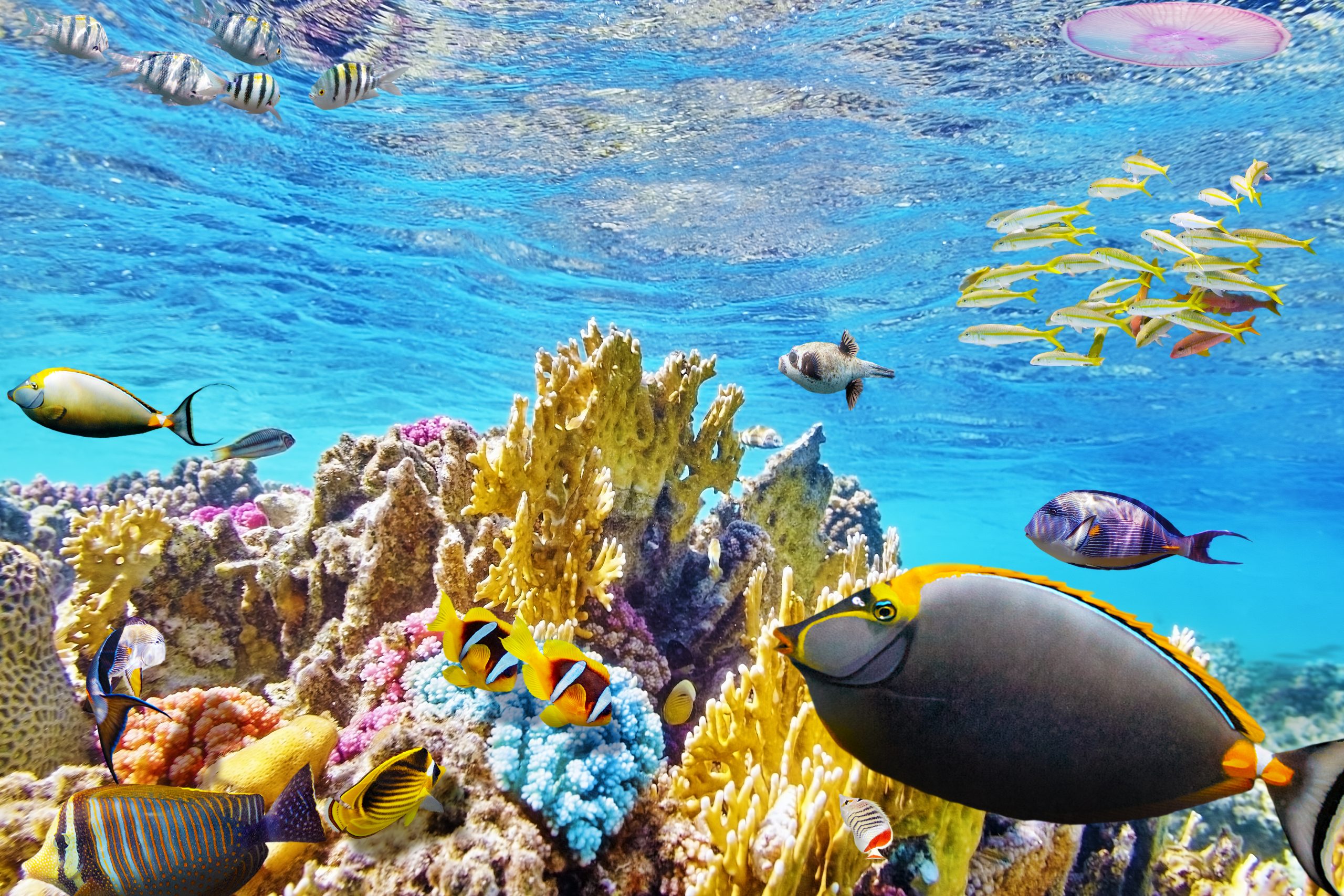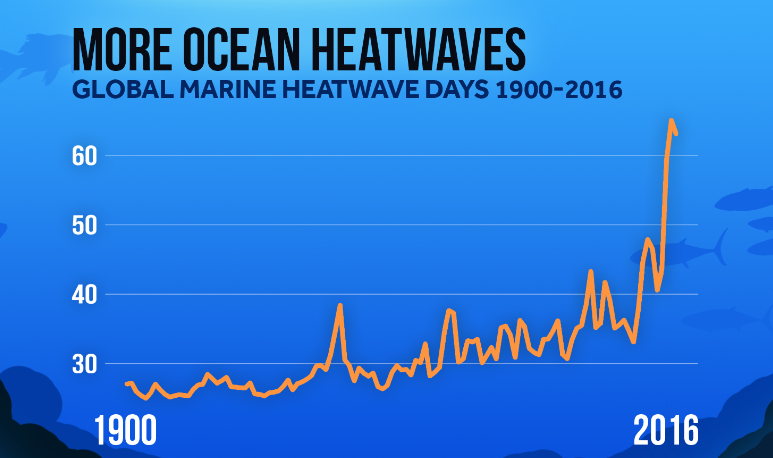After a study done in 2020 using computer simulations, Dr. William Cheung and his team from the University of British Columbia found a concerning fate for our fish: as a result of increased ocean temperatures, the fish populations in the northeast Pacific Ocean are predicted to decline significantly by 2050.
 The Great Barrier Reef, Australia.
The Great Barrier Reef, Australia.
Credit: CruiseExperts, cruiseexperts.com
We take for granted how large and beautiful our oceans really are. They are full of life, and house over 2 million different species of animals ranging from the beautiful coral reefs in Australia, to the largest animals ever discovered. However, imagine if the oceans were empty, and life no one longer existed underwater. Sadly, this is becoming a reality, and according to marine expert Dr. William Cheung, we are headed straight in this direction.
Continued global warming resulting from our emissions has caused the temperature of surface ocean waters to steadily increase. These rises in temperature have led to a doubling of marine heatwaves, or periods of extremely high temperatures in ocean waters, since around 1982 (as seen in the graph below), in turn significantly affecting all marine life, especially fish.
 Large Recent Increases in Marine Heatwaves
Large Recent Increases in Marine Heatwaves
Credit: Climate Central, climatecentral.org
Dr. Cheung not only identified patterns of current decline in fish populations as a result of marine heatwaves, but has predicted significant future decline as global warming continues. In fact, Dr. Cheung predicts that populations of common fish species such as sockeye salmon will decrease by more than 40% by 2100. These predictions are based on the assumption that we do not change our current emission trends, which does not have to be the case.
You might not think this, but you, me, and every single person on this planet plays a part in our global warming problem. Everyday decisions such as driving your car can contribute to global warming and have downstream effects in marine environments, as described in the video below.
Although there are new policies tackling climate change, and large progressions made in the right direction, according to Dr. Cheung, this is still not enough. He says,
“We really need to pick up the pace and accelerate the actions against climate change.”
So what can I do to help?
Fixing a global problem like climate change requires global contributions, and it starts with all of us. Although it might be true that your changes alone wouldn’t stop climate change, if all 7.6 billion people on the planet made one small positive change, the effects would be enormous. The TeamTrees podcast below highlights the many different ways we can start protecting the future of our oceans now.
Thank you to freesound.org (Robinhood76, SomeoneCool15, Simon_Lacelle, Votichez, Sentuniman) for providing the sound effects used in our podcast.
If we are to save the fish and the rest of marine life from these increasingly prevalent marine heatwaves, we need to act now.
~SO Group #3: William, Jessica, Balkaran, Adam
